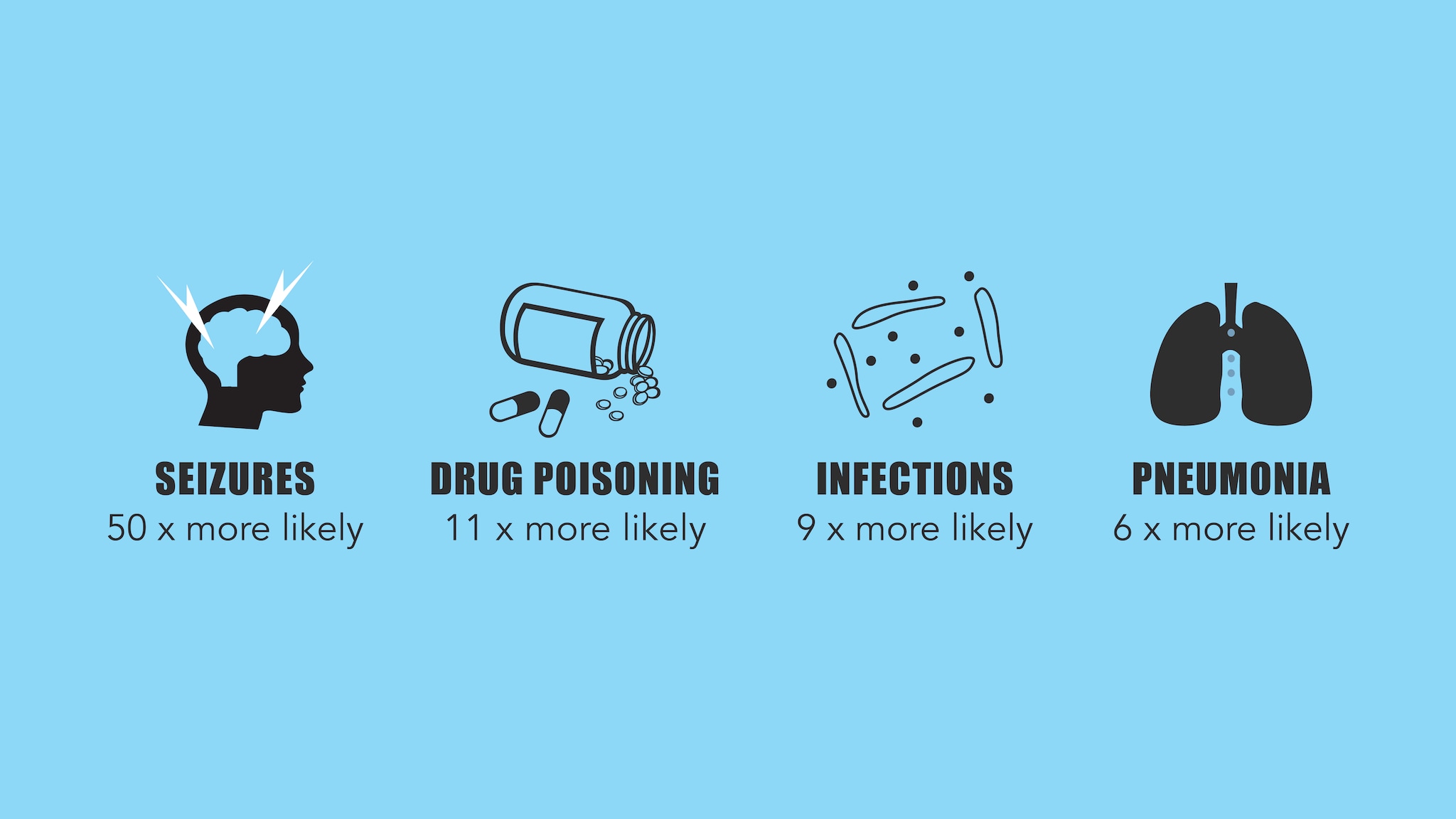Key points
- The effects of a moderate or severe TBI are different for each person and may change during recovery.
- Health problems that result from a moderate or severe TBI may be prevented or lessened.
- People with a moderate or severe TBI may experience chronic health problems.
Overview
Knowing what to do after a moderate or severe TBI might feel overwhelming. Talking with a healthcare provider about available treatments and rehabilitation services and connecting with community programs, like support groups, can help.12
Some of the health problems that result from a moderate or severe TBI may be prevented or lessened. Getting help is crucial for improving the lives of persons living with a TBI and lowering the chance for lifelong health problems.123
Learn more about moderate and severe TBI recovery.
Signs and symptoms
Most people with a moderate or severe TBI have one or more signs or symptoms after the injury. These may include:1
Thinking and Learning
Difficulty understanding and thinking clearly
Trouble communicating and learning skills
Problems concentrating
Difficulty remembering information
Motor Skills, Hearing, and Vision
Weakness in arms and legs
Problems with coordination and balance
Problems with hearing and vision
Changes in sensory perception, such as touch
Emotion/Mood
Feeling more emotional than usual
Nervousness or anxiety
Feeling more angry or aggressive than usual
Sadness, depression
Behavior
Trouble controlling behavior
Personality changes
More impulsive than usual
Long-term negative effects
People with a moderate or severe TBI may experience chronic health problems. Chronic health problems can lead to medical costs and challenges for people with TBI and their families. Research shows that among those still alive 5 years after a moderate to severe TBI:
- 57% are moderately or severely disabled.
- 55% do not have a job (but were employed at the same time of their injury).
- 50% return to a hospital at least once.
- 33% rely on others for help with everyday activities.
- 29% are not satisfied with life.
- 29% use illicit drugs or misuse alcohol.
- 12% reside in nursing homes or other institutions.
Having a moderate or severe TBI also increases the risk of dying from several causes. Compared to people without TBI, people with a moderate or severe TBI are more likely to die from:

- Centers for Disease Control and Prevention, National Center for Injury Prevention and Control. Report to Congress on traumatic brain injury in the United States: Epidemiology and rehabilitation. Atlanta (GA): Centers for Disease Control and Prevention; 2015.
- Corrigan JD, Cuthbert JP, Harrison-Felix C, et al. US population estimates of health and social outcomes 5 years after rehabilitation for traumatic brain injury. J Head Trauma Rehabil. 2014;29(6):E1-9.
- Centers for Disease Control and Prevention, National Institutes of Health. Moderate to Severe Traumatic Brain Injury is a Lifelong Condition.
